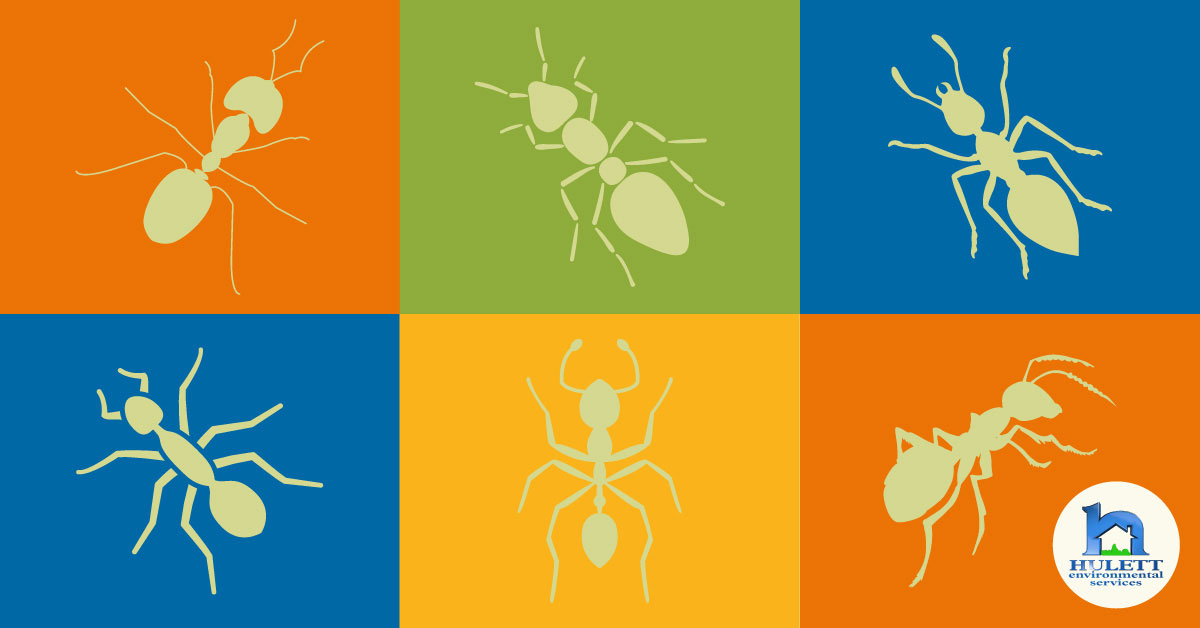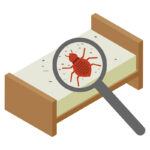
Ants: What You Need to Know
You can tell it is summer in South Florida when you spot ants checking out your kitchen, bathroom or boldly foraging along walls and floor in search of food to feed their fellow ants in nearby nests. Social insects, ants live in colonies and these colonies can number in the thousands. Some of South Florida’s ant species form colonies consisting of only one queen, while others can support many queens through a process called budding. The queen ants’ only function is to reproduce while worker ants care for the young, forage for food and defend the colony from intruders and would-be predators. The pesky ants you just can’t seem to get rid of are worker ants on a mission. The vast majority of ant issues are best resolved by a professional pest control company such as Hulett Environmental Services.
Identification
Which ant species call South Florida home? The short answer is: there is no short answer. Many ant species live in South Florida – some are native, but many invasive species arrive in containers, along with tropical plants and the like. In order to devise a plan to eliminate your ant issues, it would be a good idea to know what type of ant you have. Some ants are attracted to carbohydrate-based baits and some to protein-based baits. How can you tell which type of bait to use? Ant identification can be tricky with so many ant species prevalent in South Florida. The good news is there’s a short list of the usual suspects that invade homes, sting (or bite), or cause structural damage.
- Acrobat ants: Light brown to dark brownish black, workers measure 1/8th of an inch, with heart-shaped abdomens they can raise over their thoraxes and heads, as a defense mechanism. Acrobat ants generally nest outdoors in soil, wood or leaves and indoors in abandoned wood galleries hollowed out by termites or carpenter ants, in addition to rigid foam insulation. These ants eat sweets, as well as protein.
- Argentine ants: Light brown to medium brown, 1/10th of an inch long, Argentine ants, an invasive species, often with large colonies containing multiple queens and the ability to move their nests daily, move in large trails on structures and up trees. Argentine ants prefer sweet food but will eat almost anything.
- Big-headed ants: Light brown to dark reddish brown, ranging from 1/16th to 1/18th of an inch long, big-headed major workers’ heads appear disproportionately large for their body size. Big-headed ants often forage in trails covered with soil and prefer foods high in protein.
- Crazy ants: Most often dark brown to black but range from red-brown to grayish, crazy ants measure from 1/12th to 1/8th of an inch in length and are distinguished from various other ant species by their seriously long antennae and legs. Crazy ants move in erratic patterns, use formic acid to defend themselves against fire ants and can cause electric circuits to short out by the accumulation of dead ants that occurs when one crazy ant is electrocuted, and other crazy ants answer attack signals sent out by dying ants. Crazy ants prefer honeydew secreted by aphids and will eat sweet food.
- Red imported fire ants: Reddish brown bodies with darker abdomens, ranging from 1/16th of an inch to 1/4th of an inch long, fire ants use their powerful jaws to grasp a victim’s skin and inject venom from the stinger in their abdomen, when disturbed or threatened. Medical attention may be required in severe cases and in people sensitive to formic acid. Typically nesting in sunny exposed areas away from structures, fire ants prefer foods high in protein foods but will eat plants as well.
- Florida carpenter ants: Reddish with black abdomens, as long as 3/4th of an inch, Florida carpenter ants are among the largest of Florida’s ants. Unlike other structure damaging carpenter ants, Florida carpenter ants do not destroy wood but nest in previously insect- and water-damaged wood. Foraging in loose trails, these ants prefer sweet foods and will bite and inject formic acid into wounds, if not removed quickly.
- Ghost ants: Dark heads and thoraxes with pale abdomen and legs, ghost ants measure less than 1/16th of an inch long and are not easily seen with the naked eye. Often nesting in moist areas, ghost ants, aka “sugar ants” are known for their attraction to sweets.
- White-footed ants: Usually black with white tarsi, measuring 1/8th of an inch long, white-footed ants have become a major nuisance pest in many parts of the world, including South Florida. Often mistaken for crazy ants and Argentine ants, white-footed ants build enormous colonies and forage in thick trails up the sides of buildings. White-footed ants can cause agricultural damage by protecting aphids and other insects that produce the honeydew nectar these ants like to eat.
The list goes on to include pharaoh ants, little black ants, odorous ants and other nuisance ant species that can enter your South Florida home. Visit our bug database for more information on these and other ants you are interested in identifying.
Keeping Ants Away
The very best way to eliminate ants is to exclude them and keep your home as clean as possible. Keep the following in mind:
- Keep all snacks and open packages of food in air-tight containers or in the fridge.
- Wipe up any spills and clean dining and food prep areas regularly.
- Wash dishes immediately after meals and dispose of any food scraps in air-tight receptacles.
- Sweep or vacuum floors in dining and snacking areas.
- Seal or caulk all cracks and holes in your foundation and around entryways.
- Repair all leaky faucets and water-damaged wood.
To tackle persistent ant issues in South Florida, contact Hulett to schedule a free inspection. With over 50 years serving South Florida, Hulett’s certified and entomologist-trained technicians know how to nip your ant issues in the bud. Ranked as one of the top 20 pest control companies in the US, Hulett’s Healthy Home approach to integrated pest management uses only quality materials and methods for environmentally responsible treatments keeping your home pest-free and your family stress-free this summer and every season. Got ants? Just call Hulett!



